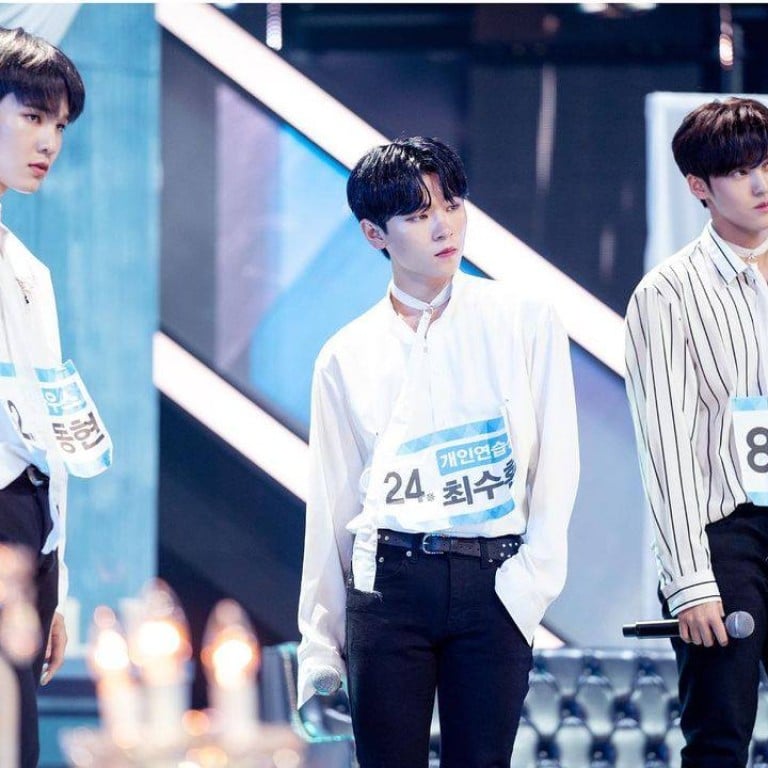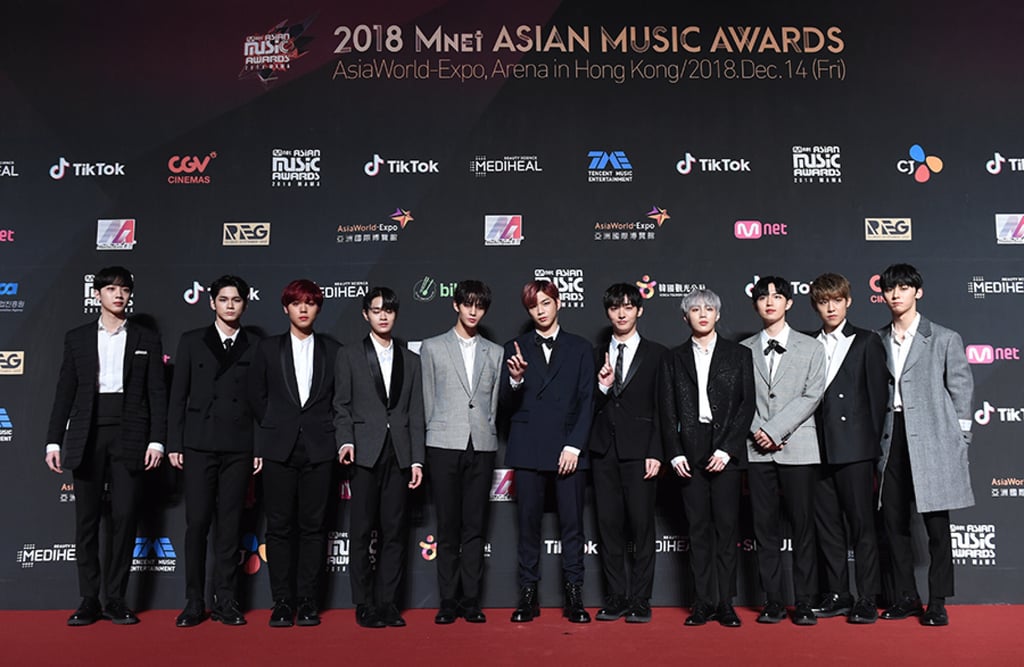Are there too many K-pop audition TV shows? Psy plans to launch one while SM Entertainment is teaming up with MGM for a competition programme for NCT-Hollywood, but is the bubble about to burst?

- Music reality shows – which pit aspiring idols against each other – launched successful groups like Wanna One and Iz*one, but have faced criticism too
- Superstar K and Produce 101 smashed ratings while Miss Trot granted new life to an ‘old-fashioned’ genre, but is the voting always fair?
There’s an audition show boom happening in the K-pop scene.
Following the smash success of programmes like Superstar K (2009-2016), K-pop Star (2011-2017), Produce 101 (2016-2019) and Miss Trot (2019-2021) – which not only scored impressive viewership ratings but also propelled numerous aspiring singers and lesser-known celebrities to stardom – more producers are devoting themselves to creating similar audition shows.
Viewers today seem to have grown addicted to these survival shows
Next month, local broadcaster SBS is set to launch Loud in cooperation with JYP Entertainment founder-producer Park Jin-young and Psy, Gangnam Style star and head of K-pop agency P Nation. MBC will also air a new audition programme in November with producer Han Dong-chul, who was behind the success of Produce 101. Mnet’s Girls Planet 999 is in the pipeline later this year auditioning aspiring female singers.

There’s a reason why viewers love audition programmes. They can take part in the nail-biting competition through voting and support their favourite contenders. Many also believe these programmes are impartial because contestants have to rely only on their musical talent to compete with each other. On top of that, they are often captivated by the stories of the contenders, most of whom have experienced twists and turns in their lives to pursue music careers.

“Viewers today seem to have grown addicted to these survival shows,” pop music critic Seo Jeong Min-gap said. “Many of them may find other music programmes, which do not pit contestants against each other, to be quite boring.”
As for broadcasters and TV networks, the rationale behind their preference is more obvious: these shows are lucrative. Since many of them have proven to be successful in terms of viewership, it is easier to attract sponsors. For instance, TV Chosun’s trot audition programme Mr. Trot garnered a whopping 35.7 per cent viewership rating last year, an all-time high for a cable channel programme in Korea.
Critics also point out that the hit songs from the shows also play vital roles in making profits.










